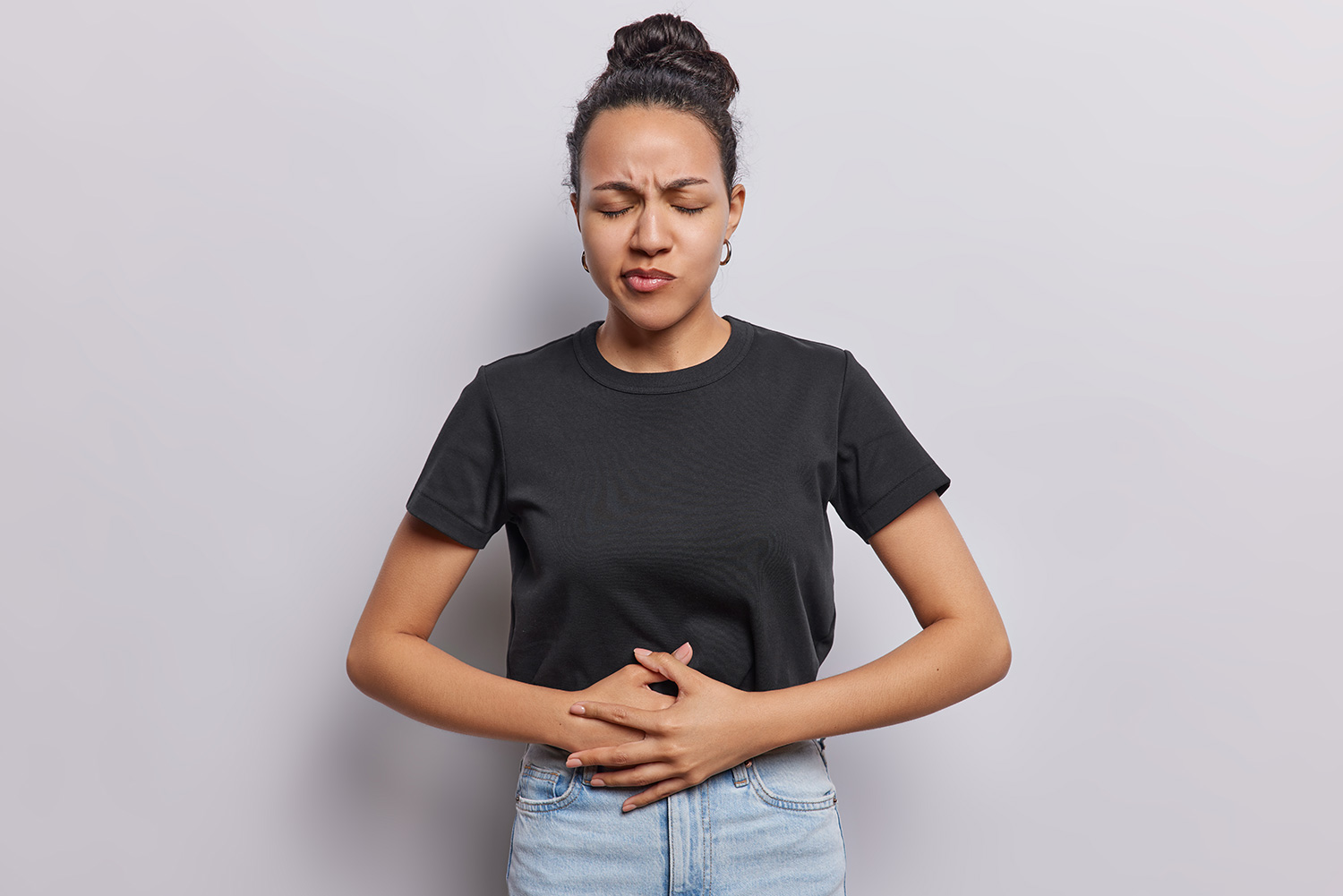Endometriosis is a chronic, often debilitating condition in which tissue similar to the uterine lining (the endometrium) grows outside the uterus. These growths can occur on the ovaries, fallopian tubes, pelvic lining, bladder, and, more rarely, beyond the pelvic cavity. Unlike normal endometrial tissue, these misplaced cells cannot exit the body during menstruation, which leads to chronic inflammation, scarring, and pain.
It’s estimated that around 1 in 10 women of reproductive age live with endometriosis, though many remain undiagnosed for years due to symptom overlap with other conditions and a lack of awareness.
Causes: A Multifactorial Picture with Immune Dysfunction in the Spotlight
Endometriosis is now seen as a multifactorial condition.
Traditionally, endometriosis has been explained through retrograde menstruation, where menstrual blood flows backward through the fallopian tubes into the pelvis. But current science shows this is only part of the story. Research now highlights a combination of factors:
- Genetic predisposition (family clustering of cases)
- Hormonal imbalances, especially elevated oestrogen
- Environmental exposures, including endocrine-disrupting chemicals
- Stem-cell involvement, where cells transform into endometrial-like tissue outside the uterus
- Immune system dysfunction
The Immune Connection
Emerging research suggests endometriosis may have an autoimmune-like component:
- Women with endometriosis are more likely to have autoimmune conditions like thyroid disease, rheumatoid arthritis, and lupus
- Faulty immune function allows endometrial-like tissue to implant, grow, and trigger inflammation
- Elevated inflammatory markers, disrupted T-cell regulation, and chronic activation of the immune system seem central to the disease process
In fact, some researchers are now describing endometriosis as a neuro–immune–endocrine disorder, recognising the interplay between hormones, the immune system, and the nervous system in driving symptoms.
For an excellent overview of this new paradigm, see this article from The Washington Post:
👉 Endometriosis might be linked to the immune system, experts say
How Endometriosis Affects Women
The effects of endometriosis can be life-altering, including:
- Severe menstrual pain
- Pain with intercourse
- Chronic pelvic and lower back pain
- Digestive symptoms (bloating, constipation, diarrhoea)
- Fatigue
- Infertility
It is estimated that 30–50% of women with endometriosis may struggle with fertility, often due to scarring, inflammation, disrupted egg quality, and anatomical distortion.
Emotionally, the condition can be draining – long diagnostic delays (averaging 7–8 years), chronic pain, and social stigma can leave women feeling isolated and disempowered.
Latest Research Highlights (2025)
- Low-FODMAP Diet: New data shows that up to 60% of women with endometriosis experience improvements in bloating and gut pain by following a low-FODMAP diet, suggesting a significant gut–endo connection. Herald Sun article
- Dietary Modification: A 2025 survey found that cutting down on alcohol, gluten, dairy, and caffeine reduced pain in many women with endometriosis (Verywell Health).
- Microbiome Research: Studies continue to explore how an imbalance of gut bacteria, including overgrowth of Fusobacterium nucleatum, might worsen inflammation. Natural foods such as fermented vegetables, turmeric, ginger, and propolis could help support a healthier microbiome (QENDO).
- Novel Non-Hormonal Treatments: Researchers at Michigan State University are exploring non-hormonal drugs to treat endometriosis without the side effects of current hormone therapies (MSU Today).
- Nervous System Involvement: Pre-clinical models show that blocking certain pain-signalling nerves can shrink lesions, opening the door to therapies beyond traditional pain relief.
Natural Strategies to Support Endometriosis
As a natural health practitioner, I believe a whole-person approach offers the best outcomes. Here are evidence-informed tools to consider:
1. Adopt an Anti-Inflammatory Diet
- Base your meals on colourful vegetables, fruits, oily fish, nuts, seeds, and extra-virgin olive oil
- Incorporate turmeric and ginger
- Trial a low-FODMAP diet with professional guidance if digestive symptoms are significant
- Reduce or remove alcohol, gluten, dairy, and caffeine, which may worsen inflammation
2. Support the Gut Microbiome
- Include fermented foods (kimchi, sauerkraut, kefir)
- Eat polyphenol-rich foods (berries, green tea, cacao)
- Use prebiotic fibres as tolerated
- Avoid highly processed foods and excess sugar
3. Move Your Body & Support Mind–Body Balance
- Gentle exercise (yoga, walking, swimming) can improve blood flow and reduce pain
- Pelvic floor physiotherapy can ease pelvic tension
- Mindfulness, meditation, and cognitive-behavioural therapies help reduce pain perception
- Acupuncture has been shown to provide pain relief for some women (Brigham and Women’s Hospital)
4. Targeted Supplements (with practitioner guidance)
- Omega-3 fatty acids (anti-inflammatory)
- Vitamin D (immune modulation)
- Magnesium (pain and muscle relaxation)
- Curcumin (turmeric extract, anti-inflammatory)
5. Immune Support & Environmental Strategies
- Support liver health through a nutrient-rich diet
- Optimise sleep
- Reduce stress through relaxation techniques
- Limit endocrine-disrupting chemicals from plastics, pesticides, fragrances, and personal care products
Fertility Considerations
Endometriosis-related fertility challenges are common, but not insurmountable. Many women go on to conceive naturally or with support. Focus on:
- Reducing inflammation
- Supporting egg and sperm quality through diet and lifestyle
- Managing stress and sleep
- Seeking fertility advice early if you have been trying to conceive for more than 6–12 months
A Modern Natural Health Perspective
We now understand that endometriosis is much more than a reproductive disorder – it is a whole-body condition involving hormones, the immune system, and the nervous system. That’s why a truly holistic approach, combining nutrition, gut support, immune modulation, stress reduction, and complementary therapies, can be so powerful.
